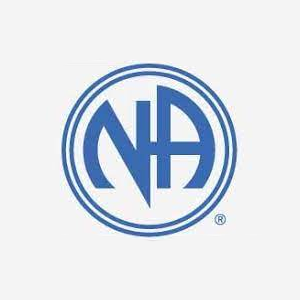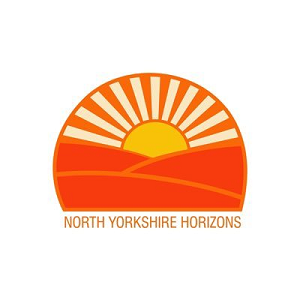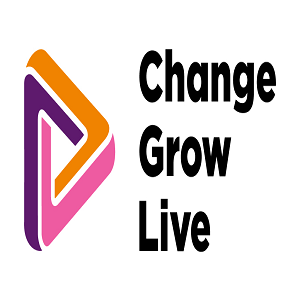Drug & Alcohol Rehab in North Yorkshire

How Does Rehab Work?
Rehab involves holistic strategies that are designed to address individual addiction with support, wellness methods, and steps to restore good mental health. Clients are introduced to educational, supportive, and therapeutic programmes that are led by experienced and professional therapists. Along with individual therapy, individuals can benefit from the support received from group sessions. Addictions are treated through a residential or an outpatient programme. If you enter an inpatient rehab programme, the programme requires that you stay inside the centre or the facility for the duration of treatment. Outpatient services are an option for those with less severe dependencies and will meet with a counsellor weekly while attending work and remaining at home.
What Happens During Residential Rehab?
Entering rehab is the initial step towards sobriety. Whilst the journey can be tough, it is actually possible to avoid relapse. You could feel apprehensive regarding the process, so allow us to assist you by taking a closer look at what to anticipate during rehab.
Prior to entering rehab, every individual will be assessed by a medical professional. The aim is to create a treatment plan suited to individual health and wellness needs. This is particularly important for those with a history of addiction and comorbid mental conditions including depression, anxiety or bipolar disorder.
An assessment is followed by detoxification. Detox is a structured process and is performed within residential rehab or at home with support from a medical professional (outpatient services). During this period, individuals abstain from drugs and/or alcohol use until the drug/alcohol is no longer present in the system. Because of the difficulties associated with withdrawal, a medically supervised detox from drugs and alcohol is recommended.
Therapy is an important part of the rehab process and every aspect of addiction treatment should be tailored to address individual backgrounds, substance dependencies, and circumstances. Interventions can range from private counselling and cognitive behavioural therapy to building coping strategies, life skills, and attending group meetings.
1. Assessment

To receive the best treatment to suit your needs, an assessment will be the phase in the recovery approach. Assessments are performed by a medical expert and will include a telephone screening. The professional will ask questions regarding your overall health, your substance use, any history of addiction, and whether you might have any comorbid mental health conditions. A telephone assessment gives staff members important information that will help to safely manage the detox process.
When you wish to pursue treatment for drug and alcohol addiction, a medical assessment must be completed. Assessments will guide therapy because it provides staff with the information, they need to develop a tailored treatment plan or advise on the appropriate intervention.
2. Detox

Detox is a process in which substances such as drugs and alcohol are safely removed from the body. It is coordinated by professionals in a residential facility.
It is best to have a managed medical detox because experienced staff are readily available to help you through the withdrawal process. As the substance is removed, you may start to develop withdrawal symptoms. Without professional help, there is a higher risk of relapse. Detoxification is followed by a fully tailored therapeutic programme. You can attend inpatient or outpatient therapy that is managed by trained addiction therapists and a dedicated team.
3. Therapy

Therapy is sought when the body is rid of drugs including alcohol. The option of being assigned to an inpatient or an outpatient service will depend on the individual assessment, finances, and life commitments. Therapy provided in treatment ranges from individual counselling with a therapist, the attendance of group therapy, and emphasis on developing positive coping mechanisms and skills.
Step by Step Process for Residential Rehab
To understand your medical and mental health history.
Arrange a suitable date to begin your journey to recovery.
Begin the managed withdrawal process from substances including alcohol.
To understand the root cause of addiction and how to overcome it.
Aftercare is provided to help manage the risk of relapse.
To help heal the wounds that addictive behaviour has caused others.
Find your Nearest Rehab Centre near North Yorkshire
The nearest rehab centre is North Yorkshire Horizons.
Address: North Yorkshire Horizons, 7 N Park Rd, Harrogate HG1 5PD, United Kingdom
Call 0333 4444 432 to discuss your alcohol or drug rehab requirements and any other questions you may have about the process of residential rehab.
Outpatient Addiction Services in North Yorkshire
Inpatient or outpatient treatment for addiction can be determined by your budget requirement & individual circumstances. Nevertheless, it is an individual process that requires full commitment and awareness to succeed. To help you understand these different options, we look at outpatient addiction treatment services compared to residential treatment.
During an outpatient programme, you will not have to stay at the facility to receive treatment. It is a more flexible solution for those who need support and therapy but cannot commit to a 24-hour inpatient programme. The purpose of outpatient services is to help you benefit from counselling while attending to family, work, and personal commitments.
If you are interested in pursuing outpatient treatment, it is important to find the right programme that suits your needs. Outpatient programmes range from paid private counselling to free charitable organisations specialising in substance dependence.
The Benefits of Outpatient Services
Private Outpatient addiction services also provide personalised care for those looking for optimal support and chances of recovery. – Owing to the flexible arrangements provided by outpatient therapy, it can accommodate a wide range of individuals and financial situations. Therapy sessions are attended once or twice weekly under the care of a certified therapist. – It is more cost-effective compared with a residential treatment programme.
The Challenges of Outpatient Services
Because one remains at home and exposed to the same triggers, there may be a higher risk of relapse and unsuccessful attempts to complete an outpatient programme. Although the NHS and other UK-based charities provide free addiction services, treatment is not tailored to the individual’s needs and waiting lists are to be expected.

How Much Does Rehab Services Cost in North Yorkshire?
Residential drug and alcohol rehab can cost around £1500- £4000 a week. Private addiction treatment within a residential facility may not be financially viable for everyone. However, charity based and government organisations deliver free or low cost programmes that individuals with addiction can still benefit from.
An example of a free addiction treatment service is that of Turning Point. The organisation provides a number of structured support programmes to help with both alcohol and drug addictions. Their website provides a self-referral service. Aside from charities such as Turning Point, you may contemplate private counselling or one of the many free support groups including Narcotics Anonymous (NA), Cocaine Anonymous (CA), and Alcoholics Anonymous.
Support Groups in North Yorkshire?

Wetherby Freedom In Recovery Physical & Online
Scout Hut, 3 Barleyfields Rd LS22 6PN Please email Sam at WetherbyFIR@outlook.com to book a place

Harrogate: Road To Recovery Online
West Park United Reformed Church, corner Victoria Ave/West Park Stray. HG1 1BL

New Beginnings Group
The Rainbow Centre Parish House Castle Road Scarborough North Yorkshire YO11 1TH
The Pros and Cons of Seeking Treatment in Your Local Area
Pros
1. You are familiar with the area which may provide a layer of comfort/safety.
2. Family or friends can easily travel to visit or are close by.
3. You may save on the costs of travelling long distances for treatment, or free addiction services may only be offered in your area of residency.
Cons
1. A local environment means access to drug dealers or other triggers. This is more of a concern if you decide upon outpatient programmes.
2. Not considering locations outside your area could mean missed opportunity for more valuable and rewarding programmes.
3. Addiction treatment programmes that are close by do not always provide the best standard of treatment.
In the event you are unsure about a particular addiction treatment service, you can look to the CQC website for more information including a rating of that service.



